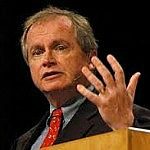Quotes about Rest
You have created us for Yourself, and our heart cannot be stilled until it finds rest in You.
Measure the time of your sleep appropriately so that you do not waste your precious morning hours sluggishly in your bed. Let the time of your sleep be matched to your health and labor, and not to slothful pleasure.
If you keep burning the candle at both ends, sooner or later you will indulge in more and more mean cynicism – and the line between cynicism and doubt is a very thin one. Of course, different individuals require different numbers of hours of sleep: moreover, some cope with a bit of tiredness better than others. Nevertheless, if you are among those who become nasty, cynical, or even full of doubt when you are missing your sleep, you are morally obligated to try to get the sleep you need. We are whole, complicated beings; our physical existence is tied to our spiritual well-being, to our mental outlook, to our relationships with others, including our relationship with God. Sometimes the godliest thing you can do in the universe is get a good night’s sleep – not pray all night, but sleep. I’m certainly not denying that there may be a place for praying all night; I’m merely insisting that in the normal course of things, spiritual discipline obligates you get the sleep your body needs.
Taken from Scandalous: The Cross and The Resurrection of Jesus by D.A. Carson copyright 2010, Crossway Books, a division of Good News Publishers, Wheaton Illinois 60187, www.crosswaybooks.org, p. 147, Used by Permission.
We should rest in Christ alone for our salvation. But along with that there is still an abiding principle that we ought to worship on the Lord’s Day and trust God enough to have a weekly routine where we cease from our normal labors… He made the Sabbath for man, not man for the Sabbath (Mark 2:27). God gives us Sabbath as a gift; it’s an island of get-to in a sea of have-to. He also offers us Sabbath as a test; it’s an opportunity to trust God’s work more than our own. When I go weeks without taking adequate time off, I may or may not be disobeying the fourth commandment, but I’m certainly too convinced of my own importance and more than a little foolish. If my goal is God-glorifying productivity over a lifetime of hard work, there are few things I need more than a regular rhythm of rest.
Taken from Crazy Busy by Kevin DeYoung copyright 2013, Crossway Books, a division of Good News Publishers, Wheaton Illinois 60187, www.crosswaybooks.org, p. 91-92, Used by Permission. Get this book!
You can borrow time, but you can’t steal it… And the longer you try to borrow against sleep, the more your body (or God) will force you to pay for those hours – plus interest.
Taken from Crazy Busy by Kevin DeYoung copyright 2013, Crossway Books, a division of Good News Publishers, Wheaton Illinois 60187, www.crosswaybooks.org, p. 96, Used by Permission. Get this book!
We all know we need rest from work, but we don’t realize we have to work hard just to rest. We have to plan for breaks. We have to schedule time to be unscheduled. That’s the way life is for most of us. Scattered, frantic, boundary-less busyness comes naturally. The rhythms of work and rest require planning.
Taken from Crazy Busy by Kevin DeYoung copyright 2013, Crossway Books, a division of Good News Publishers, Wheaton Illinois 60187, www.crosswaybooks.org, p. 98, Used by Permission. Get this book!
Doing nothing only reinforces depression and leads to greater unfaithfulness. By the same token, never use activity to narcotize (dull) the pain. Give it to the Lord. Rest, relaxation, and solitude with the Lord needs the balance of involvement in faithful work and ministry, but always out of a spirit of faith, never just activity.
Faithfulness, http://bible.org/seriespage/mark-14-faithfulness,Copyright ©1996-2005, All rights reserved.
Someone may ask, “But why should I rise early?” To remain too long in bed is a waste of time. Wasting time is unbecoming of a saint who is bought by the precious blood of Jesus. His time and all he has is to be used for the Lord. If we sleep more than is necessary for the refreshment of the body, it is wasting time the Lord has entrusted us to be used for His glory, for our own benefit, and for the benefit of the saints and unbelievers around us… Anyone who spends one, two, three hours in prayer and meditation before breakfast will soon discover the beneficial effect early rising has on the outward and inward man.
God wants us to follow a recurring pattern of intense work and then rest, intense work and then rest, and so forth. Whatever view one takes of the Sabbath, surely the six days of work and the one day of rest embedded in the creation remain relevant in some sense. Any routine of life that is unsustainable long-term cannot be of God. He calls us to work. But he also calls us to rest, in order to work most fruitfully. What sets us apart is this. We rest, in order to work; we do not work, in order to rest. We who believe the gospel are not living for the weekend, but for The End. In the meantime, we figure out rhythms of life that make fruitful labor sustainable.
Sleep is a parable that God is God and we are mere men. God handles the world quite nicely while a hemisphere sleeps. Sleep is like a broken record that comes around with the same message every day: Man is not sovereign. Man is not sovereign. Man is not sovereign. Don’t let the lesson be lost on you. God wants to be trusted as the great worker who never tires and never sleeps. He is not nearly so impressed with our late nights and early mornings as He is with the peaceful trust that casts all anxieties on Him and sleeps.
Sleep is a daily reminder from God that we are not God. Once a day God sends us to bed like patients with a sickness. The sickness is a chronic tendency to think we are in control and that our work is indispensable. To cure us of this disease God turns us into helpless sacks of sand once a day. How humiliating to the self-made corporate executive that He has to give up all control and become as limp as a suckling infant every day.
If we are living our lives productive physically and emotionally as God intended we should never feel guilty about taking a break. Sometimes a nap or day off or vacation is the best thing we can do. We need the solitude to recharge and reflect. We retreat not in defeat, but we retreat in order to come back stronger and refreshed. Even when the Gospel needed to be proclaimed, Jesus and His disciples took time away from the crowds (Mk. 6:31; Lk. 9:10).
Those who can rest while still exercising dominion are not only more productive, but more rested.
Ask RC: If You Could God back in Time, What would you Tell 18 year Old You? November 19, 2013, Used by Permission.
When thou sleepest, think that thou art resting on the battlefield; when thou walkest, suspect an ambush in every hedge.
It is wisdom to take occasional furlough. In the long run, we shall do more by sometimes doing less. On, on, on forever, without recreation, may suit spirits emancipated from this “heavy clay,” but while we are in this tabernacle, we must every now and then cry halt, and serve the Lord by holy inaction and consecrated leisure. Let no tender conscience doubt the lawfulness of going out of harness for a while, but learn from the experience of others the necessity and duty of taking timely rest.
How many of our sleepless hours might be traced to our untrusting and disordered minds. They slumber sweetly whom faith rocks to sleep. No pillow so soft as a promise; no coverlet so warm as an assured interest in Christ.
The bow cannot be always bent without fear of breaking. Repose is as needful to the mind as sleep to the body… Rest time is not waste time. It is economy to gather fresh strength.
Rest time is not waste time. It is economy to gather fresh strength… It is wisdom to take occasional furlough. In the long run, we shall do more by sometimes doing less.
Here is the Son of God, who in less than three years achieved far more than kings and generals had ever achieved in a thousand years, taking time out. Why? Well, He knew His needs and limitations – even He couldn’t work twenty-four hours a day seven days a week – and neither can we. But also He could have the confidence to do this because of His quiet, serene knowledge that His time was in His Father’s hands, that He wasn’t going to change the world by one endless round of activity, but by doing things in God’s time in God’s way.
Wisdom to Live By, Christian Focus Publications, 1998, p. 132-133. Used by Permission.











